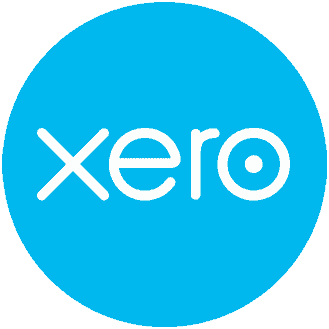The role of a Chartered Accountant in 2037?
A Chartered Accountant is an expert in what they do. They have significant training and experience and operate under a Code of Ethics which means they can only offer services and advice when they know what they are talking about. A Chartered Accountant is an expert and a trusted advisor for their clients.
But times are changing and it is becoming increasingly difficult to keep up with the new demands on our profession.
The changing world of Accounting
Nigel Latta famously predicted in 2017 that accountants will be out of a job within 20 years. He suggested their numbers would be slashed from 17,669 in 2017, to as few as 19 by 2037, because accountants will have been replaced by robots and algorithms.
Latta is correct in terms of the increase in automation we have already seen in the profession since 2017. Accounting functions have increasingly been moving into “the cloud”, and we are certainly witnessing the rise of artificial intelligence; machine learning; robotic process automation; and the adoption of various other accounting technologies.
However, I think Latta has forgotten to factor in the human side of accountancy – the side that cannot be replicated by robots or technology. The fact that accountants are actually pretty smart and are not just going to put their heads in the sand and be replaced by automation. Instead the accounting profession has been evolving.
The days of sitting down with clients and going through a set of accounts that could be 18 months old is quickly being replaced with regular catch ups, where accountants are using new technology to provide real time data and forward looking KPIs to clients. Accountants are taking their knowledge of working across a range of businesses and industries and are honing their skills to provide valuable business advice. This new, forward looking Business Advisor part of the role, is meeting increased demand from clients who want more from their accountant: – more advice; more information; on a more timely basis.
Behind the scenes things are changing too. Accountants have to keep up with both accounting regulations, and the ever-changing world of tax. In addition to the compounding legislative requirements of CRS, AML, and XPV – I made up XPV, but you get the picture. Accountants are now expected to be an all-round business superhero. And if we get it wrong – the penalties can be severe.
What about Tax Advisors?
As a Chartered Accountant who specialises in tax advice, I can’t sit in my glasshouse and throw stones. The changes don’t stop with BAS accountants. Tax advice is a key area that could be replaced with algorithms and artificial intelligence with predictive technology over the next twenty years – meaning tax advisors are not immune to future changes either. But, in the same way it does for BAS Accountancy, the future lies in using new technology as a tool. Using these tools, combined with our business knowledge and people skills to provide valuable advice to clients into the future.
A good Tax Advisor not only needs to be able to understand a set of accounts, but also a client’s business. Plus, they need to ensure their advice is practical and commercial. They must also understand the political and economic world they operate in, and the drivers of upcoming changes.
They need to be able to have a conversation about the real-world impact of those super clever technical tax solutions they come up with – and to have the skills to communicate their knowledge in a way a client can easily understand. These are people skills and involve the intricacies of human interaction. Aspects a robot just wouldn’t understand.
The solution?
Increasingly, accountants will need to be able to have a conversation with their clients about the impacts of a broad spectrum of legislation. Accountants need to know enough about tax rules and changes to tax legislation to be able to identify issues for their clients. And in turn, be able to discuss these tax issues with their clients .
But no-one is expected to be an in-depth expert across all fields. This is where an accountant may find they need to bring in, and rely on, trusted independent experts. The tax team the Big Four and other large players have long had access to. For the hard questions – “The Too Hard Box”.
We want to help you to be an all-round business superhero.
We want to free you up to be the best trusted advisor you can be to your clients. We want you to be able to focus on providing fantastic advice and support for your clients. You do what you do best, and delegate those niggly tax questions to us. And we do what we do best, provide specialist tax advice.
But not just any tax advice. Tax advice that will take on Nigel Latta’s predictions and show his robots up for what they are … walking, talking legislation (well maybe not walking…).
As a team, we strive to be commercial. We understand you need answers and recommendations – not maybes. We speak English, not technical tax lingo. And we know our solutions need to work in the real world – there is no such thing as a one-sided journal.
How we have helped our clients with the “The Too Hard Basket”:
Just a sample of issues we have looked at for other advisors over the past few months:
- Advising when the Brightline Test will apply to rural land and when it won’t.
- Advising whether the sale of a TDR is taxable under the land taxing provisions.
- Calculating and advising on the best option to return a foreign superannuation transfer as income.
- Structuring a business to best use historical tax losses.
- Tax issues on an Employee Share Scheme.
- Structuring a GST change of use adjustment on a mixed-use property.
- Trust distributions to overseas beneficiaries.
- Receiving inheritances from offshore.
- R&D tax credits.
- Interpreting US Tax Returns for New Zealand tax purposes.
- Residency, returning overseas salary income, Covid-19 concessions.
If you want to know more on how we can help you please get in touch on 021 023 08149
The post The role of a Chartered Accountant in 2037? appeared first on .













